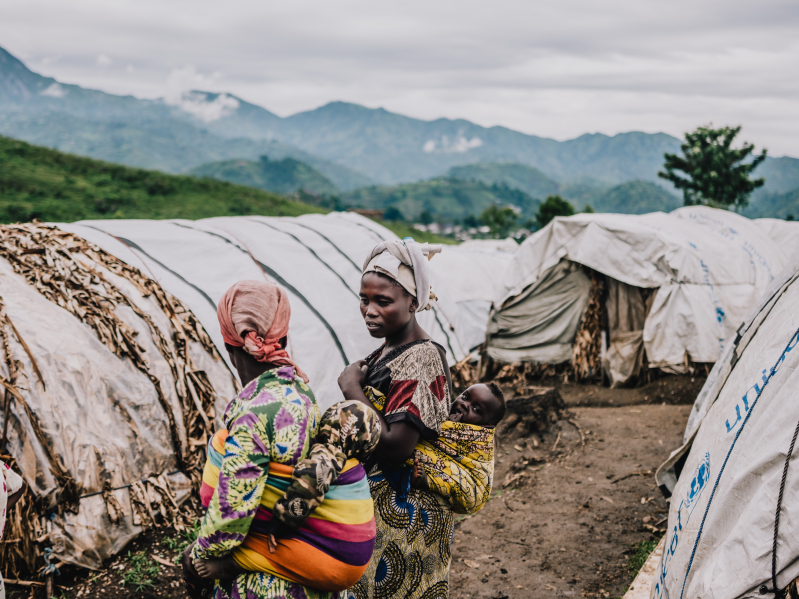
21 Christian humanitarian organizations listed 10 crisis-hit countries that have been neglected by the international community, further risking the lives of over 300 million people facing hunger, displacement and armed conflict. The Christian aid organisations, through the Integral Alliance, have also identified five factors driving neglected crises in these countries, 6 of which are in Africa.
Integral Alliance members reported that affected citizens in Burkina Faso, the Democratic Republic of Congo, Ethiopia, Madagascar, South Sudan and Sudan are not getting the attention or the response they need from government and non-government agencies. Other countries included in the Integral report outside of Africa were Afghanistan, Colombia, Myanmar and Yemen.
Fiona Boshoff, the CEO of the Integral Alliance, said the report aimed to identify and address the factors that led to diminishing media and public attention to humanitarian crises across the 10 countries covered.
“This report calls for collective action to address and amplify the needs of neglected crises. By uniting efforts, the Integral Alliance seeks to transform the landscape of humanitarian aid, ensuring that no crisis remains hidden and every response is imbued with hope and resilience,” said Boshoff.
Geopolitical and economic alignments often determine the response by donor countries, noted Myal Greene, CEO and President of World Relief. Greene said that interests rather than need of the affected people has led to “an outsized influence on the distribution of aid.”
“As a result, some countries in crisis become isolated from donor countries, aid agencies, and potential support. This isolation leads to neglect which can worsen and leave countries without an ongoing basis of partnership,” said Greenem in his contribution to the Integral report.
Isabelle Duval, Development Program Director, SEL France, referenced an empirical study that showed both the UK and France were more likely to provide aid to countries that were part of their colonies than to other countries. “The distribution of aid for political reasons extends beyond the legacy of colonialism. The United States, the largest donor in gross foreign assistance dollars, has used its aid as an extension of foreign policy for decades,” said Duval.
Another factor driving neglect in affected countries is lack of media coverage especially in Western countries. KlaasJan Baas, Media Relations Manager at ZOA Netherlands, said that the media has not done enough to highlight the plight of humanitarian crises, which has led to a growing funding gap. He cited Yemen, South Sudan, the DRC, Afghanistan and Myanmar as examples of countries that have faced a media black out often due to prolonged conflict.
“This lack of attention in the media has major consequences with donors and politicians and increases the risk of losing the attention of churches and ordinary people in their praying and giving,” said Baas.
Baas and Martha Zonnerveld, head of humanitarian response at Tearfund Netherlands, identified limited access for journalists to the affected areas, information overload and commercial pressures as factors that have led to a waning coverage of humanitarian disasters and crises.
“The media acts as a catalyst in generating attention. Without this attention, fundraising becomes harder, there is a lack of political will to address hard situations and churches and the general public do not focus their praying and giving to alleviate the suffering of those affected. Since we are all created in His image, we know that no one should be considered ‘neglected’ in the eyes of God,” said Zonnerveld.
The Integral Alliance report also identified donor fatigue as a result of an increasing number of humanitarian crises, some that have gone on for years. One of the impacts of donor fatigue, like in the case of South Sudan, is the complexity of interventions relating to stagnant outcomes. Donor fatigue, noted the report, can cause inertia or desensitization which can reduce funding for recovery.
Hannah Moeda, the National Engagement Manager at Transform Aid International, explained that donors feel discouraged in their support if there are little or no improvements. “For those donors committed to seeing a difference in neglected crises, it is important to understand response plans take time and therefore so too should the financial support to match,” said Moeda.
The impact of climate change on vulnerable populations has not been effectively addressed by the international community partly due to “our inability to connect the dots”, argued Allan Bussard the CEO of Integra.
“There are those who argue that countries can live isolated lives, not influencing nor being influenced by what is happening elsewhere. But the climate is not listening to their arguments,” said Bussard.
In the six months to June 2024, East Africa was among the four regions severely impacted by climate disasters that led to loss of lives, livestock and destruction of property after torrential rains in Kenya, Somali, Tanzania, South Sudan and Burundi. The World Bank estimates that climate change may push 130 million into poverty by 2030, half of which could be from Sub-Saharan Africa and South Asia.
While geopolitics, lack of media coverage, donor fatigue and climate change have contributed to neglected crises, the report identifies untapped potential in supporting locally-led action. A case provided in Sudan by LM International Country Director, Denis Semakula, exemplifies the efficacy of community led initiatives and the need to support. Emergency Response Rooms (ERRs), operated by volunteer medical and technical professionals, have proved essential in providing information and aid services especially in urban areas. However, locally-led initiatives face financial, legitimacy and process challenges that international organizations can help overcome.
Integral members include CEDAR Fund, Food for the Hungry, Integra, International Health Partners, LM International, Medair and Medical Teams International. Others are Mission East, SEL France, Transform Aid International, World Concern, World Relief, World Renew, ZOA and Tearfund UK, Australia, Belgium, Ireland, Netherlands and New Zealand.





